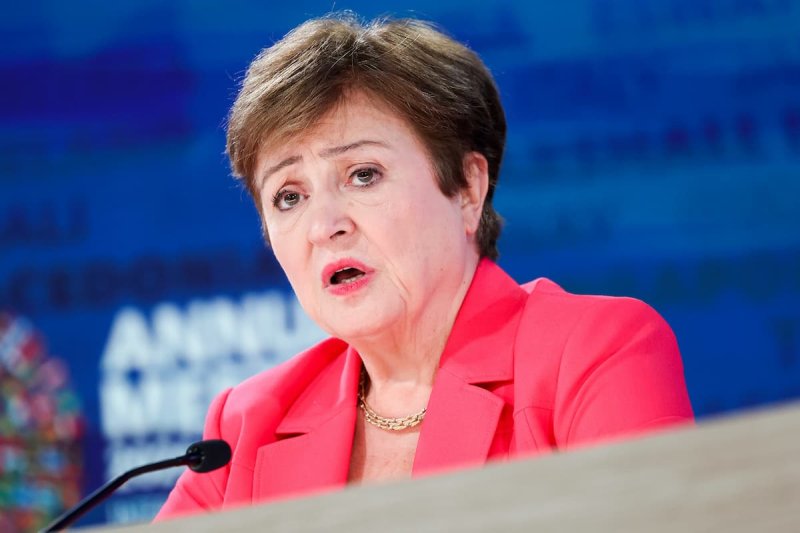
IMF’s Kristalina Georgieva urges nations to rebalance for resilience

Georgieva emphasised the need for rebalancing policies fiscal, monetary, and structural that reduce vulnerabilities and mitigate trade frictions Speaking on Thursday at the IMF headquarters in Washington ahead of the spring meetings of the IMF and World Bank next week, IMF managing director Kristalina Georgieva painted a stark picture of a world economy increasingly tested by trade tensions, financial volatility, and a breakdown in global trust.
Yet, she remained firm in her belief that a more resilient and better-balanced world economy is still within reach if governments act wisely, boldly, and collectively.
Georgieva began by noting that the resilience shown by countries in the face of past shocks is once again being challenged this time by a fundamental reboot of the global trading system. Market volatility is rising sharply, and trade policy uncertainty has hit unprecedented highs. She pointed to tumbling global stock prices amid tensions, even as some valuations remain elevated.
Georgieva began by noting that the resilience shown by countries in the face of past shocks is once again being challenged this time by a fundamental reboot of the global trading system. Market volatility is rising sharply, and trade policy uncertainty has hit unprecedented highs. She pointed to tumbling global stock prices amid tensions, even as some valuations remain elevated.
This, she warned, is emblematic of the sudden and sweeping shifts that now define our world shifts that require thoughtful and coordinated responses.
Framing the backdrop of current instability, Georgieva described trade tensions as a long-simmering pot now boiling over, fuelled by a deep erosion of trust both in the global economic system and among nations themselves.
While global integration has undeniably lifted billions out of poverty, she acknowledged that many communities felt left behind. Job losses, wage suppression, and supply chain disruptions have led many to blame the international system for economic inequities. This dissatisfaction has only been compounded by growing trade distortions, such as tariffs and non-tariff barriers.
Citing data, she highlighted a halt in the earlier decline of US effective tariff rates, along with a rise in subsidy measures across major jurisdictions. These actions have reinforced the perception of an uneven playing field and intensified trade imbalances.
The evolving notion of national security has further complicated trade flows. In a multipolar world, where goods like semiconductors and steel are now deemed strategic, self-reliance is gaining new currency even at a higher economic cost.
The fallout from escalating trade barriers is significant, Georgieva warned. The US effective tariff rate has soared to levels not seen in decades, triggering retaliatory measures from other nations.
While the US, China, and the EU the world’s three largest importers may be relatively insulated, their actions have outsized effects.
Smaller advanced economies and emerging markets, highly dependent on trade, are bearing the brunt. For low-income countries, the situation is compounded by shrinking aid flows as donors turn inward.


